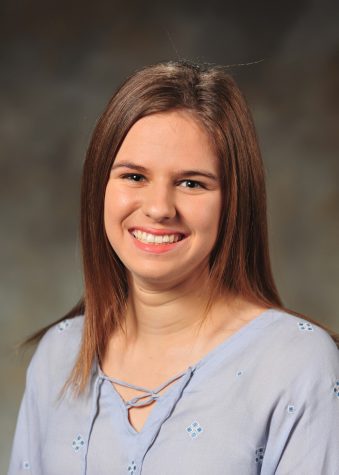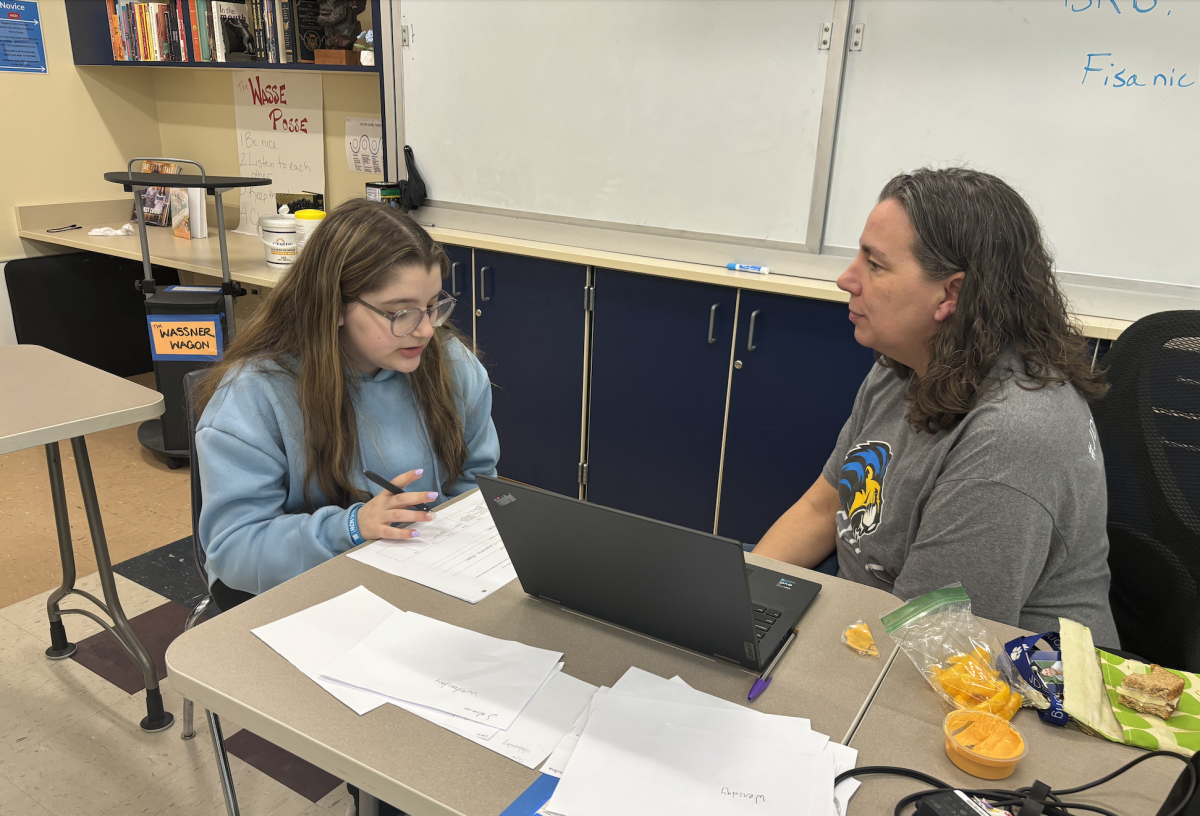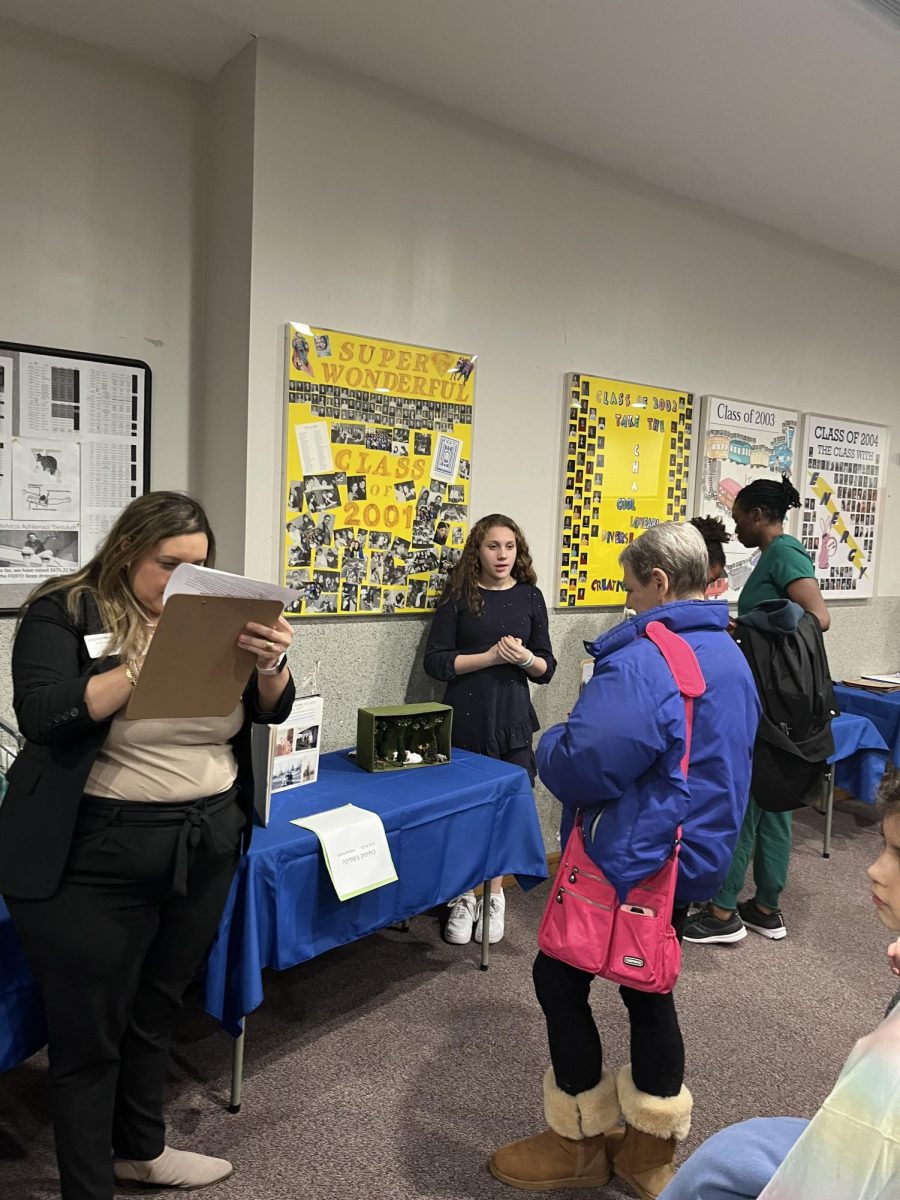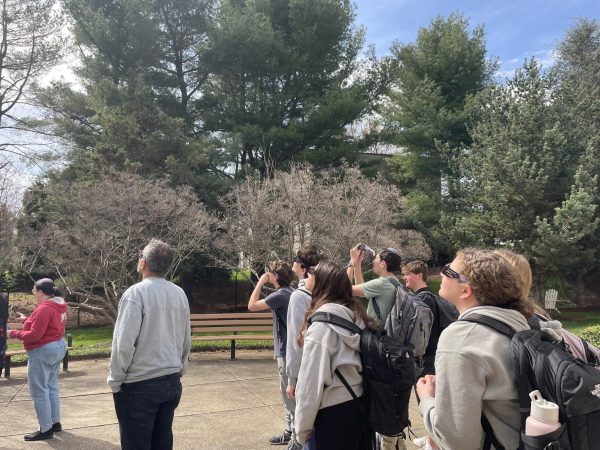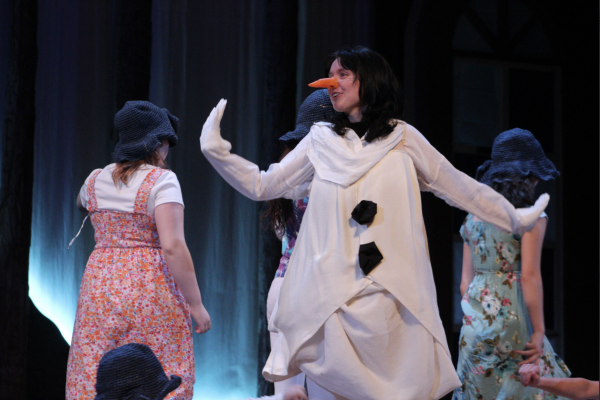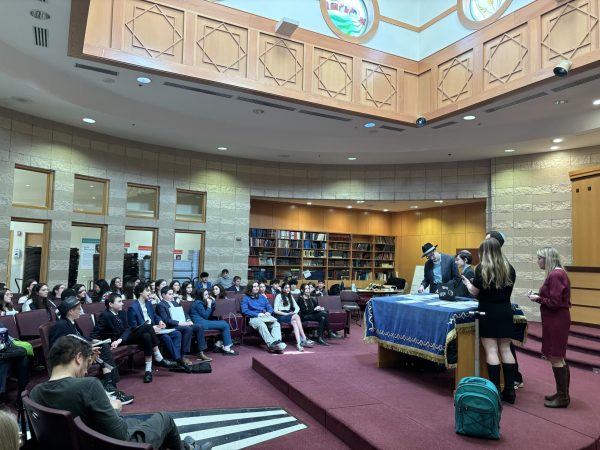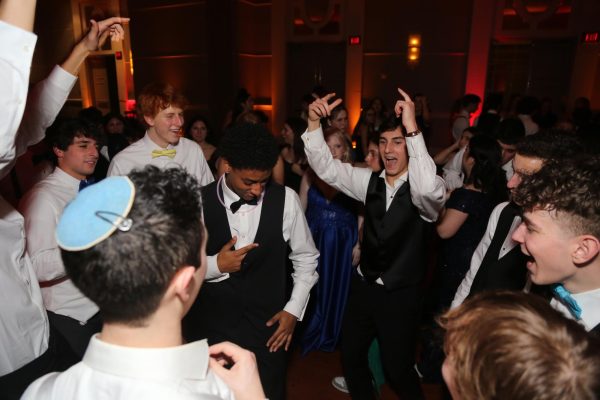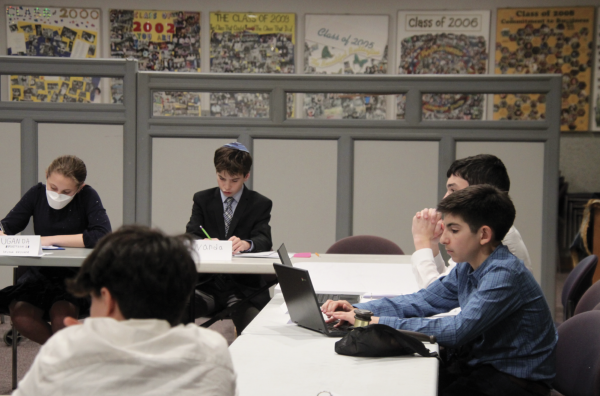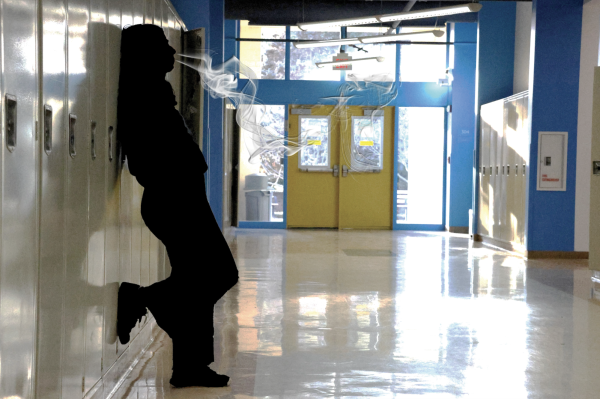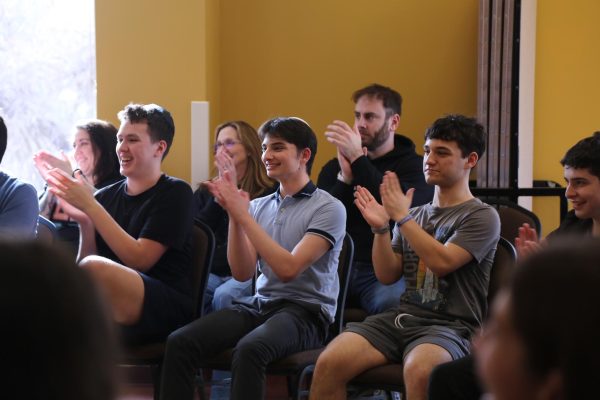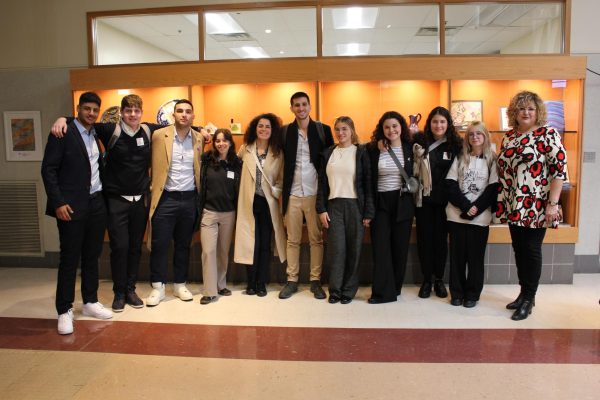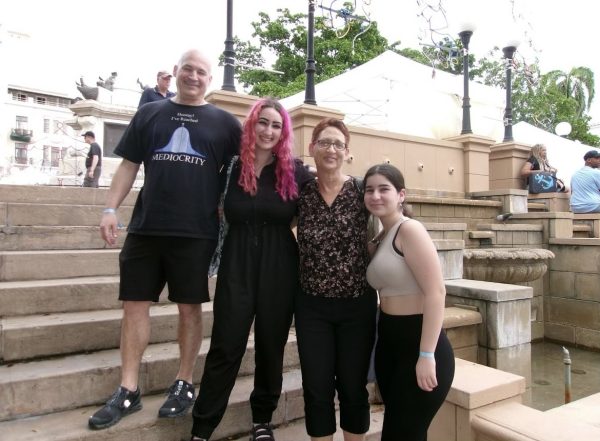Eighth Graders Participate in Annual Model Congress
March 11, 2015
Perhaps the United States Congress should learn from the CESJDS eighth graders. In their recently completed Model Congress simulation, a project they have been working on in history class for roughly a month, they were able to pass nine bills in only two days.
Students were assigned partners and topics, and together proposed bills to solve current problems such as immigration, education, social security, health care, minimum wage and more. Initially, class committees discussed, amended and voted on bills, and afterwards, eighth grade history teachers Marc Dworin, Eytan Apter, Heidi Zansler and Natalie Levitan selected bills that were presented in front of a larger “Congress,” consisting of about half of the grade.
Eighth graders Kate Sosland and Seth Eisenstein proposed a bill to reduce the gender wage gap.
“It was interesting to me that we are in the 21st century but still women are earning 77 cents for every dollar that a man made,” Sosland said. “So we decided that we really needed to do something about this because legislation had been passed that did not really help as much as we wanted it to.”
More specifically, Sosland and Eisenstein wanted to give a tax break to companies with women on the board of directors and raise the minimum wage from $7.25 to $10.
“Raising minimum wage would reduce the wage gap by five percent and also have a lot of other benefits,” Sosland said. “By doing the tax incentive we are not telling companies that we need them to do this, but we are encouraging them that they should think of women and men as more equal.”
Eighth grader Ilana Kaplan was fascinated by the wage gap bill and was impressed “because they really showed how much research went into their bill and how much they learned and taught others.”
The wage gap bill successfully passed in the initial committee by a vote of 18 to three, but failed in the larger Model Congress, 22 to 24.
“[In the large Model Congress] there were a lot of disagreements on if minimum wage would not be effective and lack in the economy, and if this happens if we would be discriminating against men,” Sosland said.
Although her bill failed, Sosland and many others found the debates in Model Congress interesting and pleasurable.
“We felt very professional,” eighth grader Jordan Herling said. “It was really a fun project overall because we got to [create] something and present it to the class.”
Cultivating these oral presentation and public speaking skills was the history department’s intention. According to history teacher Eytan Apter, Model Congress teaches students how to “form an opinion,” and how to “debate their opinion,” two skills he believes are very important.
Students also pushed themselves to actively participate in the process.
“I learned that it takes a lot of strength if you don’t like [a bill], to be able to speak up [against] it,” eighth grader Jonah Gershman said.
Heated debates were particularly interesting.
“The freedom to work act was very controversial because it was about immigration and everyone had a different opinion about what was right or wrong to allow so it was very interesting,” Kaplan said.
Overall, students learned and grew from the Model Congress experience.
“I thought it was really cool to see everyone’s opinions coming together [in] the debates themselves,” Sosland said. “Even though I disagreed with some people they still had very valid and good opinions. So I think that it was a really well done project and I learned a lot from it.”


